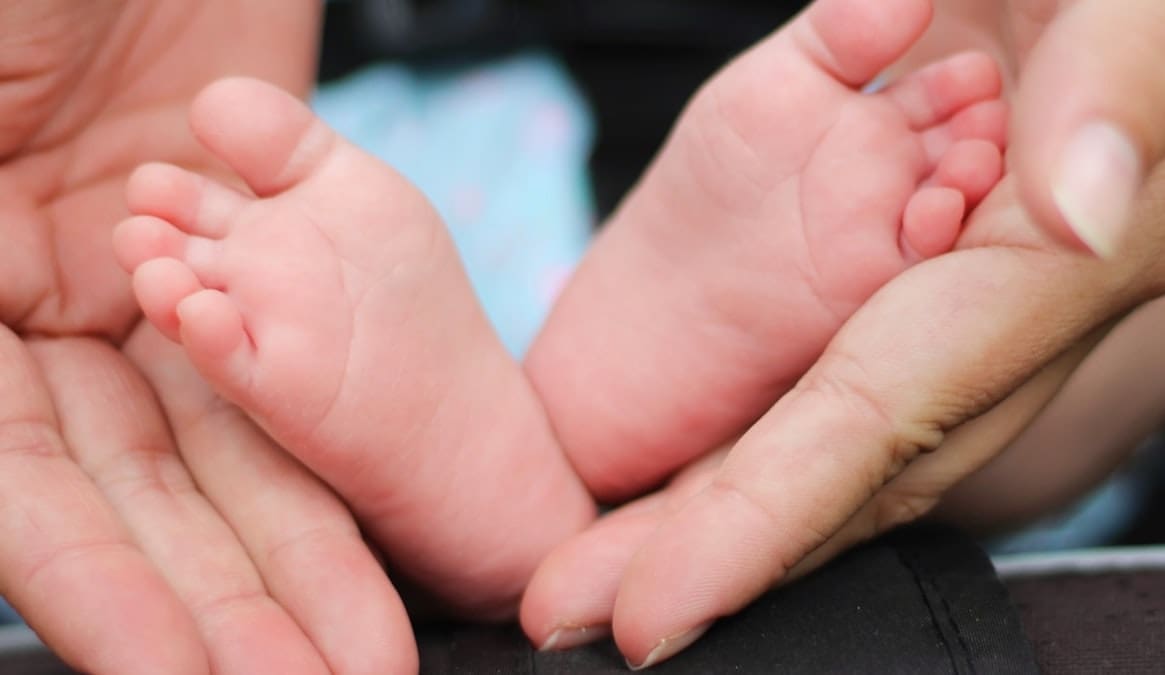Pregnancy and the birth of a child are usually times of joy, excitement, and celebration. However, the months leading up to and following birth are often emotionally and physically draining. Over 50% of new mothers contract what doctors have deemed, the “baby blues”, a short phase of sadness in the initial days following pregnancy. The symptoms of “baby blues” are relatively mild and resolve without treatment within one week. If the symptoms persist and worsen, the new mother is suffering from postpartum depression and should seek treatment.
What is Postpartum Depression?
Postpartum depression is part of a larger group of mood disorders called perinatal depression. A study conducted by The American Congress of Obstetricians and Gynecologists (ACOG) revealed that 14-23% of women will struggle with some symptoms of depression during and after pregnancy. The different types of perinatal depression include:
- Prenatal depression — Symptoms include pervasive sadness, anxiety, poor concentration, extreme feelings of failure and guilt, and severe fatigue during pregnancy.
- Postpartum depression — Symptoms include persistent anxiety, sadness, tearfulness, loss of appetite, insomnia, and fatigue after the birth of a child.
- Postpartum psychosis — Symptoms include delusions, auditory hallucinations, or visual hallucinations any time within the first year after giving birth.
Read this helpful guide to understand how postpartum depression affects women across the world.
Postpartum Checkup: Common Causes of Depression
Each woman’s experience is unique; however, doctors have studied perinatal diseases and determined common causes and risk factors.
Hormonal Changes
Pregnancy causes a wide range of hormonal changes in a woman’s body both before and after her child is born. The volume of estrogen and progesterone in the mother’s body are significantly increased throughout the course of the pregnancy, only to dramatically drop within the first 24 hours following childbirth. Estrogen and progesterone are two female hormones required for both pregnancy and menstrual regulation. Just as hormone changes often provoke mood shifts around a woman’s menstrual period, the substantial hormonal shift following childbirth can trigger depression.
Thyroid hormones are greatly affected by pregnancy as well, peaking during gestation and plummeting after childbirth. The hormones produced by the thyroid gland modulate your body’s energy and mood. Additionally, thyroid hormones affect metabolic rate, heart and digestive performance, muscle control, brain development, and bone strength. The reduced thyroid levels following pregnancy can result in symptoms of sleep loss and lack of concentration, weight gain, and mood changes such as irritability and depression.
Common Postpartum Risk Factors
No demographic group of women is exempt from perinatal depression. The following are documented risk factors, not guarantees that a woman with the risk factors will contract perinatal depression. In addition, a woman without any of the following risks could still experience perinatal disease.
Mental Illness
Women with a personal history of depression or another form of mental illness are at the greatest risk of contracting a perinatal depression. Even if a woman has not experienced depression herself, a family history of depression and mental illness can be a risk factor for perinatal depression, as can depression or mental illness in her partner.
Support System
The physically and emotionally exhausting process of carrying and delivering a child is helped by having a network of supportive family and friends. A woman who does not have an adequate support system can feel isolated and experience feelings of hopelessness.
The woman’s relationship with her partner greatly affects her experience with her pregnancy. If a woman’s marriage is suffering or she and her partner are experiencing financial difficulties, she is at greater risk of experiencing perinatal depression. Women who feel trapped in an abusive environment are at a high-risk level.
Physical Health of Mother and Child
A woman who faced complications with a previous pregnancy or birth is likely to experience anxiety through her pregnancy and is at a greater risk level. Additionally, if the woman suffers from a chronic illness, the strain of gestation, childbirth, and caring for her new infant may induce depression. If the woman’s child has a congenital, acquired physical, or neurodevelopmental disorder, the challenges posed are high-risk factors.
Additionally, women who are pregnant at a young age, experiencing stressful life events, or struggle with substance abuse disorders are at a greater risk for contracting perinatal diseases.
Women who feel depressed during or after pregnancy may be reluctant to seek treatment due to their symptoms or the stigma of having a less-than-perfect experience as a new mother. It is critical that pregnant women and new mothers receive support from their friends, families, and physicians, and keep an eye out for any of the following pregnancy depression symptoms:
Postpartum Checkup List: Tell Tale Signs
Women who feel depressed during or after pregnancy may be reluctant to seek treatment due to their symptoms or the stigma of having a less-than-perfect experience as a new mother. It is critical that pregnant women and new mothers receive support from their friends, families, and physicians, and look out for perinatal depression symptoms such as:
- Anxiety
- Sadness
- Fatigue or exhaustion
- Extreme irritability
- Intense worrying
- Poor concentration and indecisiveness
- Hopelessness
Women with pre- or post-childbirth depression may notice changes in their behavior, such as tearfulness, problems sleeping, or loss of appetite. A mother with PPD (postpartum depression) often feels overwhelmed, inadequate, ashamed, or guilty. Commonly, those suffering from PPD experience a lack of interest in previously enjoyable activities, their family, or their baby.
Do You Need Treatment?
All forms of perinatal depression are treatable conditions. However, particular care and consideration must be taken when selecting a treatment method for a woman who is carrying a child, nursing, or physically weakened while recovering from birth. In addition to psychotherapy, psychopharmacological treatment methods can be helpful and safe, but are sometimes unsuitable for treating perinatal depression. TMS is a non-convulsive, noninvasive method of treating depression that stimulates brain wave function using magnets, and it is a safe treatment option for women with perinatal depression. To learn more, read our blog post on TMS treatment for postpartum depression.
If you believe you have postpartum depression or another form of perinatal depression, please reach out to our office. Our dedicated staff at Mid City TMS would love to help you find a safe and effective treatment plan.



